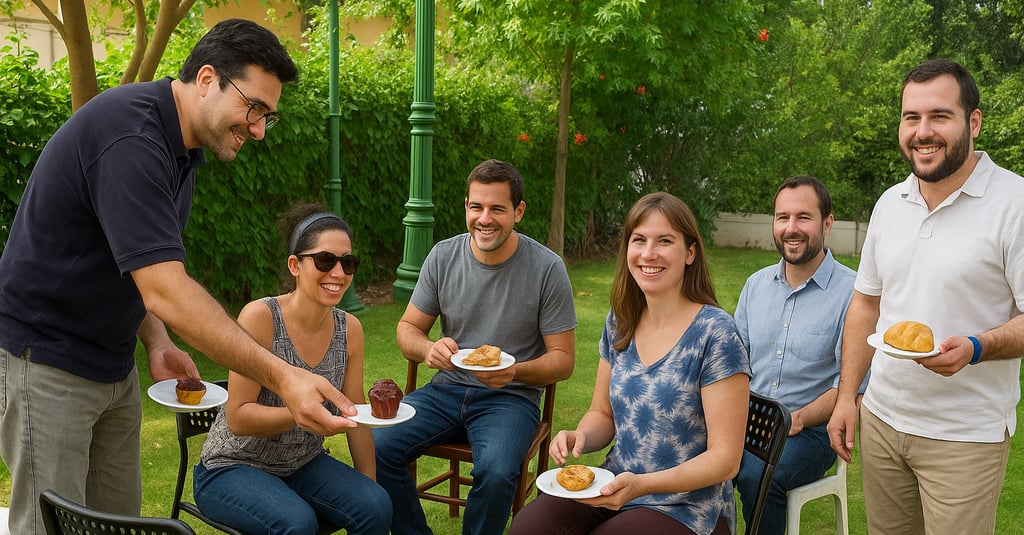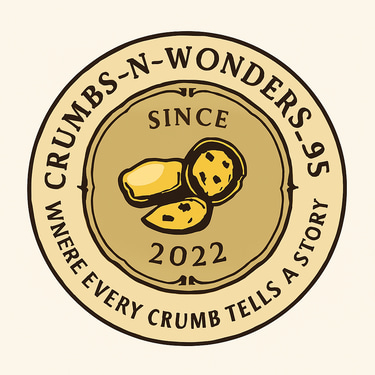Transformed at the Table
When everything you thought you knew about your purpose crumbles, sometimes the most sacred work begins in the most ordinary places.
DAILY REFLECTIONS
Wandering Armenian
7/20/20254 min read


Transformed at the Table
Scripture Focus: Romans 11:33–12:3
The phone call came at 3:47 AM.
Jerome DeSales had been expecting it for weeks, but that didn't make the words any easier to hear. "Budget cuts," the director said. "We're closing the Haiti operation. I'm sorry, Jerome. You have thirty days."
Twenty-three years. Twenty-three years of pulling children from rubble, of distributing water in refugee camps, of being the hands and feet of hope in places where hope seemed impossible. Gone.
Now, six months later, Jerome stood in his childhood kitchen in Santo Domingo, flour dusting his forearms, wondering if this was what failure looked like. The house still smelled like his grandmother's cooking-garlic, sofrito, memories. But today, it smelled like cinnamon bread and something he couldn't name. Maybe it was a possibility.
"You're making bread again?" his neighbour Carlos called through the screen door. Carlos had been asking this question every Saturday for three months now, ever since Jerome started baking to keep his hands busy and his mind from wandering to darker places.
"Come in, viejo," Jerome called back, not looking up from the dough he was kneading. His hands moved with the same precision they once used to set up medical tents, but gentler now. More patient.
Carlos shuffled in, his worn flip-flops announcing his arrival. At seventy-four, Carlos lived alone in the house next door, his wife gone two years now, his children scattered across three countries. Jerome had watched him grow smaller each month, meals skipped, conversations with the television his only company.
"Smells like your Abuela’s kitchen," Carlos said, settling into the plastic chair Jerome had learned to keep ready.
"That's the point." Jerome shaped the dough into loaves, muscle memory guiding his movements. "She always said bread was a prayer you could eat."
They sat in comfortable silence while the bread rose. Jerome had learned to appreciate these quiet moments—so different from the constant urgency of his old life. In the camps, every second mattered. Someone was always dying, always needing, always waiting. Here, time moved differently. The dough would rise when it was ready, not a moment before.
"I keep thinking I should be doing something bigger," Jerome said finally, voicing the thought that had been gnawing at him for weeks.
Carlos looked at him with eyes that had seen seven decades of living. "You think this isn't big? You think showing up isn't enough?"
That evening, Jerome sat on his small porch with his worn Bible, reading Romans 12:2 again: "Do not conform to the pattern of this world, but be transformed by the renewing of your mind."
The world had patterns, he realized. The aid world measured success in numbers—lives saved, funds raised, programs launched. But what if God's measuring stick was different? What if transformation wasn't always dramatic? What if it happened in kitchen conversations and shared meals and the simple act of seeing someone who felt invisible?
The next Saturday, Carlos brought his friend Miguel. The Saturday after that, Miguel brought his daughter Ana, recently divorced and drowning in the exhaustion of single motherhood. Soon, Jerome's small kitchen couldn't contain the growing circle of people who came not just for bread, but for something harder to name.
They called them "quiet tables"-Saturday afternoons that stretched into evenings, where stories were shared like communion bread, broken and distributed among hungry hearts. Jerome listened to Ana's fears about raising her son alone. He heard Miguel's regret about harsh words spoken to his estranged brother. He watched Carlos slowly come back to life, his voice growing stronger each week as he found people who valued his stories.
"I used to think I was saving the world," Jerome told me during one of our late-night phone calls, his voice thick with something between grief and gratitude. "Now I think maybe the world is saving me."
But it wasn't that simple, and Jerome was honest about that too. There were mornings when he woke up feeling like he was playing house while real suffering continued elsewhere. There were nights when the silence felt like cowardice, when the bread felt like a consolation prize for a life that used to matter.
"I wrestle with it," he admitted. "Paul talks about not thinking of yourself more highly than you ought, but what about not thinking of yourself lowly enough? What about believing that your ordinary life doesn't count?"
The answer came gradually, the way bread rises-slowly, invisibly, until suddenly it's transformed into something it wasn't before.
Jerome began to see that every person who entered his kitchen carried out their own emergency. Ana's loneliness was as real as any refugee's hunger. Carlos's grief was as urgent as any natural disaster. Miguel's regret was as destructive as any earthquake.
"Crisis doesn't always wear a uniform," Jerome realized. "Sometimes it wears the face of your neighbour. Sometimes it lives in the house next door."
The bread became a bridge—not just to his past, but to a future he couldn't have imagined. Each loaf was a prayer, each shared meal a small rebellion against a world that insisted only the dramatic matters.
Six months ago, Jerome thought his story was ending. Now he knows it was just changing chapters. The work looks different—quieter, smaller, less impressive on paper. But on Saturday afternoons, when his small kitchen fills with laughter and tears and the kind of honest conversation that only happens when people feel safe enough to be real, Jerome knows he's exactly where he belongs.
The bread still rises. The people still come. And God, it seems, is still in the business of transformation—not just in the dramatic moments that make headlines, but in the quiet, ordinary spaces where life happens.
"The world changes us, but we don't have to conform to it. Sometimes the most radical act is refusing to believe that bigger is always better, that louder is always more important, that dramatic is always more meaningful. Sometimes transformation happens one conversation at a time, one shared meal at a time, one Saturday afternoon at a time."
For reflection:
What "patterns of this world" shape how you measure the value of your life?
Where do you see God working in the ordinary moments of your daily routine?
Who in your life might be hungry for more than food?
Lord, help me see the sacred in the ordinary. Teach me that transformation isn't always dramatic, that service isn't always public, that love isn't always loud. Show me the emergencies hiding in everyday faces. Amen.

